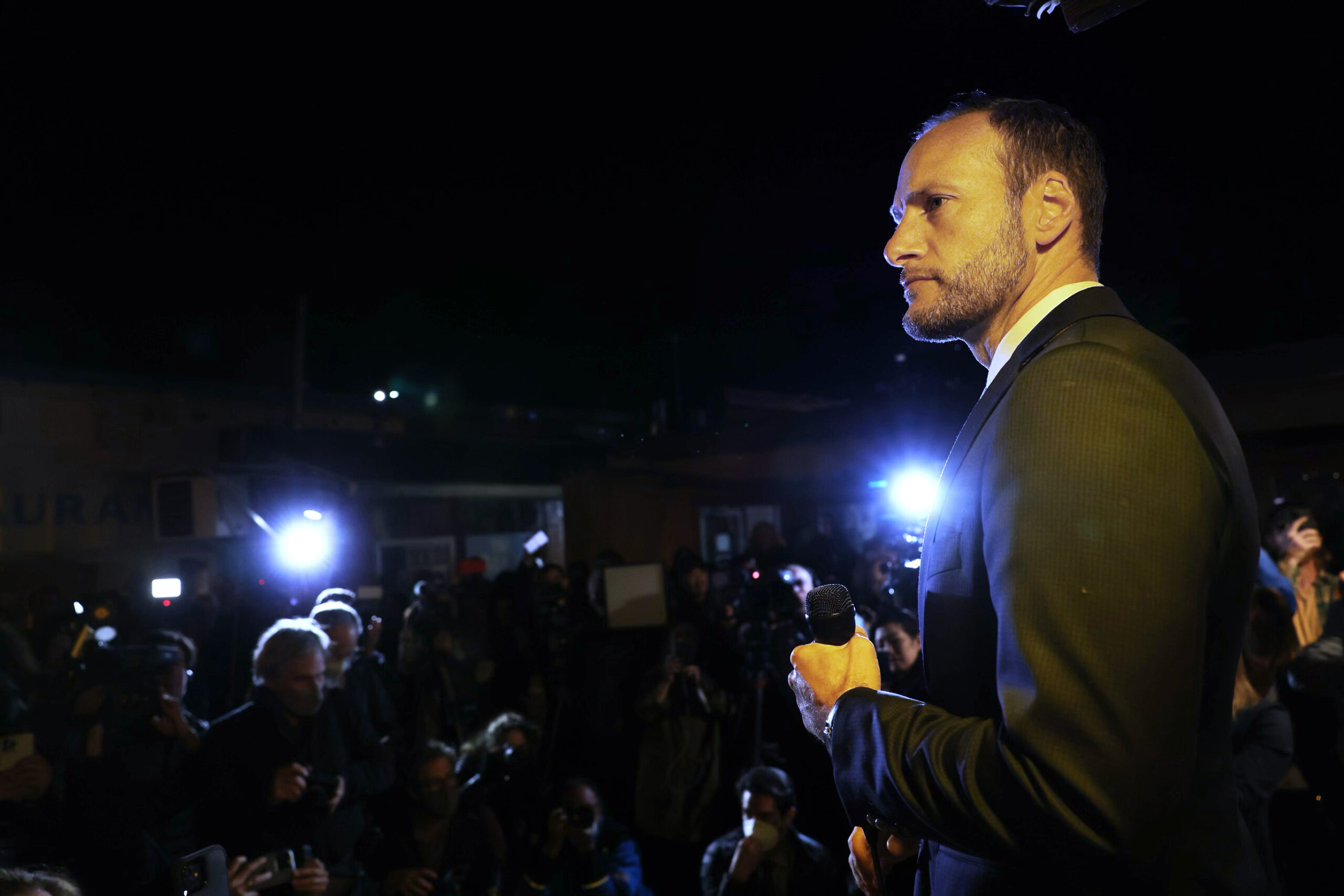After ascending to power on a promise to transform the justice system, District Attorney Chesa Boudin saw his first term cut short Tuesday by a deep-pocketed recall campaign that capitalized on fears of rising crime.
Early returns in the June 7 election showed Boudin losing by a 60-40 split, with almost 71,000 voters supporting Proposition H, the measure to recall him. While ballots are still being counted, the result is not in doubt—and the substantial margin in a race that had become a national bellwether for attitudes about progressive policies will likely reverberate widely.
Boudin, a former public defender and the son of imprisoned radical leftists, faced an unforgiving, all-out assault from the time he took office. An initial recall effort failed in 2021 but gave way to a more-coordinated campaign as former prosecutors, Bay Area tech and real estate interests and moderate Democrats joined forces and assailed Boudin for being soft on crime.
Retail thefts and attacks against Asian Americans went viral on social media and were weaponized against him, and a general state of anxiety grew in the city as the pandemic persisted. Boudin’s defeat came just four months after San Francisco voters ousted three school board members, who were widely viewed as putting social justice politics ahead of students.
The progressive prosecutor’s supporters argued that he was creating a fairer, more humane criminal justice system while holding the most violent offenders accountable. He didn’t have the time to prove his policies were effective against problems that have existed for years, they argued.
“Voters weren’t asked to choose between criminal justice reform and something else,” Boudin told his supporters Tuesday night. “They were given an opportunity to voice their outrage and their frustration and they took that opportunity.”
Jason McDaniel, an associate professor of political science at San Francisco State University, said the results of Tuesday’s recall should send a clear signal that progressives’ message, at least, may need to be tweaked.
“(Boudin) is an activist of that movement and that’s who he is, and that’s the kind of campaign he ran, but perhaps that’s not the best messaging for the progressive movement that wants to make real policy gains,” McDaniel said.
Boudin came out on top in a close race to succeed the outgoing district attorney, George Gascón, in 2019. He was the most progressive candidate in the contest, pledging to hold police accountable for misconduct and reduce mass incarceration.
The pandemic changed the math on what anxious residents prioritized, but Boudin continued to focus on his campaign promises. Under Boudin’s watch, the DA’s office expanded so-called diversion programs as alternatives to jail time—feeding the recall’s narrative that Boudin was more concerned with the well-being of offenders than with victims.
His insistence on citing data showing that crime was down often appeared condescending to those who felt that lawlessness was going unchecked. His reluctance to convict drug-dealers for their actual crimes seemed out of step as overdose deaths soared over the past two years.
Boudin and his supporters spent more than $3 million to defeat the recall, but his opponents dropped more than $7 million to oust him across various committees, according to campaign finance records. Huge chunks of the pro-recall funding came from the Bay Area’s investor class, with hedge fund managers like William Oberndorf and venture capitalists giving six-figure sums. More than a fifth of the funds came directly from stock transfers.
National media outlets—always drawn to the politics and personalities of San Francisco—framed the recall as a referendum not just on progressive prosecutors but on the political program of the left more broadly. Stories focusing on Boudin seized on the horrific state of homelessness and drug addiction in San Francisco’s downtown core, and often drew a direct line from the crises to the DA’s progressive policies.
And Boudin, a Yale graduate and a Rhodes Scholar who grew up in the public spotlight, was nonetheless a political novice whose people skills were wanting at times.
“It was a bad idea for him to be a politician in the beginning,” former Mayor Willie Brown told The Standard on Tuesday. “The personality isn’t there.”
Matt Gonzalez, chief attorney for the Public Defender’s office and a prominent local progressive, said recall proponents unfairly blamed Boudin for longstanding problems in the criminal justice system.
Boudin was held responsible for conditions on the street and “all the effects of capitalism in our society” that would otherwise be directed toward City Hall, Gonzalez said. With Boudin gone, he added, the Board of Supervisors and Mayor London Breed could see greater scrutiny.
“Mayor Breed benefited greatly by having Boudin be the focus on these attacks,” Gonzalez said. “The focus is going to come back on her.”
McDaniel said the city’s ranked-choice voting system, sometimes called “instant runoff” voting, might ultimately be the biggest factor in creating the conditions for the recall. Rather than having the support of more than half of voters in 2019, Boudin secured just 36% of first-choice votes to win with a plurality.
“A runoff election between two candidates focuses voters’ attention much more so, and that can be a good thing,” McDaniel said. “We need to grapple with how ranked-choice voting impacts that sense of legitimacy.”
Boudin will not be ousted from office immediately as the Department of Elections has to certify the results and a window of time must then pass before Breed can appoint a replacement.
Voters will have the opportunity to elect a new district attorney in November. The election later this year will once again be decided by a ranked-choice vote. Boudin has not indicated whether he plans to run again.
